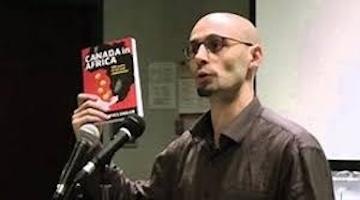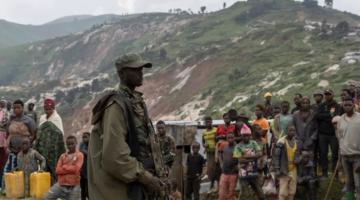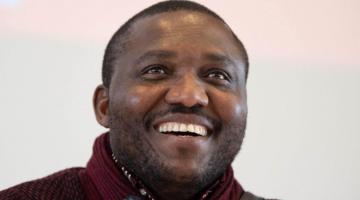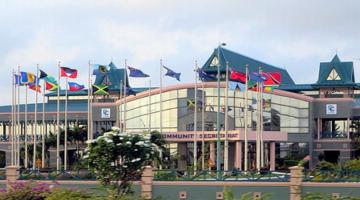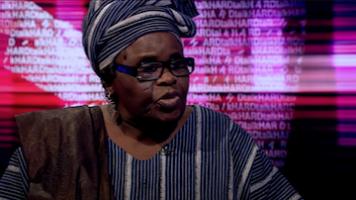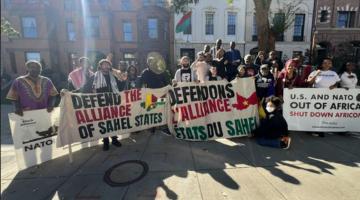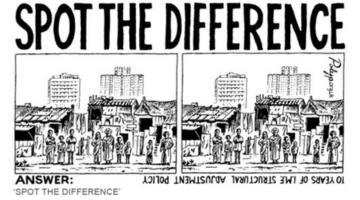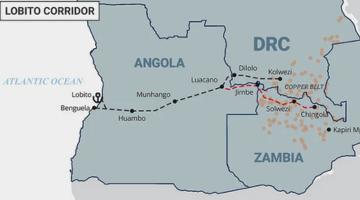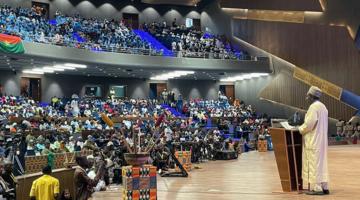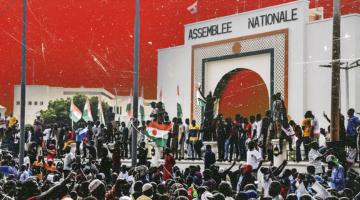Anti-Black racism in Libya is stoked by the west to justify intervention and maintain dominance over the nation. The path toward liberation is to reject Europe and embrace a political Pan-Africanism.
The month of March saw three North Atlantic Treaty Organization interventions that led to the destruction of three fierce non-aligned countries (Yugoslavia 24/3/1999, Iraq 19/3/2003, and Libya 19/3/2011) and the projects they resembled for the rest of the world. Whereas Yugoslavia has been reduced to balkanized states with lingering animosities between the respective new republics, Iraq with dysfunctional and sectarian governance, and in Libya it has produced a state that rejects reconciling with its own history and positionality as an African and Arab country. A tradition of anti-Black racism was exploited and ultimately allowed NATO’s 2011 intervention in Libya to succeed in destroying the country.
It is not a prerogative to argue about the number of demonstrators who took to the streets in 2011 and if they comprised a big number. What indeed took place is a general discontentment with the direction the country was taking with its Pan-African project. As Capasso noted in his book on Libya (and critiqued such mentality), Libyans largely aspired to transform Libya post-2003 lifting of sanctions into a Dubai in Northern Africa. The capitalist modernity which is predicated on the human utility being maximized through various forms of consumerisms that satiated human desire was a key feature of protestors’ demands, such that some even carried a sign in the eastern city of Benghazi that reads, “United States of America, you have a new ally in North Africa”.

April 2011, Benghazi
What was clear is that the protestors had grown wary of Libyan Arab Jamahiriya’s economic policies that resulted in decades of sanctions, isolation, and de-industrialization. Nonetheless, Libya in 2011 had a tremendous level of safety, free social services (health care and education), and various developmental projects taking place (public housing, interest-free loans). At the same time, there was youth unemployment, widespread corruption, and state-sponsored nepotism. These internal contradictions were inflamed by the events in the uprisings in the region.
The uprising, which is not to be confused with revolution (as Michael Parenti defines the revolution: if the poor people have something to eat after the disruption then it can be called a revolution), was militarized from the onset. Protestors attacked military barracks and captured heavy weaponry, which was met with increased surveillance, policed curfew, leading to the death of armed protestors and military personnel. In other words, when force was used in 2011, it led to the militarization of the uprising. The protestors in eastern Libya used Molotov bombs, stole ammunition and ransacked police stations and eventually became armed. What was an uprising has now turned into an armed rebellion.
On the Question of Use of Mercenaries
Libya, more or less like the rest of North Africa, has a population consisting of Arabs, Tuareg, Tebu, Amazigh and Black peoples.. Moreover, during what was the vision of Pan-Africanism (mid 1990s to 2011), Libya allowed the entry of migrant workers for 3 months without a visa, which increased their number to more than one million at any given time then. Historically, the area the Black Libyans inhabited received generous government subsidies for agricultural projects (tomato farms in the south and sheep farms in a northern town called Tawergha) and the whole of the country, including the desert in the south, was provided with fresh water through the Great Man-Made River. These subsidies led many to ascribe to the state ideology of Third World Socialism, and as the Green Book ascribed to the ideology of the “People’s Army” and the strength of the nation is predicated on the armament of the individual, to showcase one’s loyalty to the nation many sought joining the military. A big number of those were dark-skinned Libyans.
These historical facts were completely ignored by liberal media and framed Black people as mercenaries. In the first instance of anti-Blackness, a Black Libyan military soldier, by the name of Hesham Al-Shushan, was captured and ridiculed on a video at the beginning of the uprising. They asked him if he is Libyan, to which he replied yes. The video conflates being human with being Libyan. As if by the virtue of being Libyan one’s humanity is gained, and the right to live is maintained. The opposite, meaning not being Libyan, negating the right to live in the rebels’ logic, justifying killing. Hesham Al-Shushan was slaughtered, publicly ridiculed, and then lynched on a public bridge in the eastern city of the Albaida. Al Jazeera, al Arabiya, CNN, BBC, France24, and many others reported that he was an African mercenary.
This racist formulation has legitimized the rebels’ use of anti-Blackness discourse as a tool to gain popularity. The war was cast as a fight between Libyans, meaning exclusively lighter skinned ones, and so-called African mercenaries whose loyalty had been bought by the Libyan government. Witnesses noted biased treatment against lighter and darker skinned military personnel. In a number of videos filmed in Tunisia, Italy, and Egypt, Black African migrant workers who fled Libya, have attested that the rebels forcefully dressed them in military clothing and filmed them in order to show that they were the regime’s mercenaries.
As the escalation between the government forces and the armed rebels intensified, the image became clear. Dark skinned Libyans were framed as non-Libyan, Black African mercenaries. And so, the fight between government forces and the rebels presented the pernicious conflict to be that of Arabs against dark-skinned foreigners; whites who demand “freedom” against Blacks who want “the dictator”. Obviously, with the army’s extensive military training, the rebels had no chance in fighting Libya’s army. That is where the pleas for a foreign intervention commenced.
The process of de-Africanization and re-Europeanization of Libya: The Political Economy of Anti-Blackness
The issue of framing Blacks in Libya as foreign mercenaries, or what the media purported as “African mercenaries," meant that the rebels were fighting foreign, Black Africans. NATO was portrayed as the dignified intervenors who will save Libyans from being slaughtered by “Africans.” In this overly simplistic narrative, which has won the hearts of many (for example, the only time the Danish parliament ever voted unanimously on an issue was when it came to intervening militarily in Libya), represented the conflict as an issue of morality. The West as the humane ones and the Africans as the savage ones. That led the National Transitional Council, which was put in place under the helm of the pre-2011 Minister of Justice Mustapha Abdeljalil, to seek legitimacy through Western states' recognition, ignoring Africa completely. This resulted in the abandonment of the Pan-African project, causing a rupture between Libya and the rest of the African continent, and re-aligning Libya with its current "saviors," the Europeans. Besides NATO’s campaign serving as the rebels air force and forgoing any human rights violations committed by the rebels against civilian populations, their role was also instrumental in sidelining Africa’s peaceful involvement in the conflict. NATO’s no-fly zone over Libya “rejected requests by the African Union High Level Ad-hoc Committee on Libya to fly to Tripoli to mediate [between the Libyan parties]”.
Hence, the de-Africanization and re-Europeanization of Libya, harking back to the times when Libya was colonized, and Africa partitioned by European states.
What Africa offered differs greatly from the warmongering attitude of NATO and the functionaries of imperialism (UAE and Qatar). Africa advocated for a peaceful solution, requiring the withdrawal of local and foreign armed forces from Libya as expressed in the African Union’s Communiqué and the Open Letter on Libya, African and the New World Order. The African Union’s peaceful approach is girded in its loyalty to the Libyan regime’s Pan-Africanist ideology, which aims at freeing the continent from Western influence and costly reliance, hence the west’s adamant intervention to halt the launching of the African Central Bank (ACB), the Africa Investment Bank (AIB), and the African Monetary Fund (AMF).
Libya's investments in Africa are many, though they tend to be perceived as neocolonial. To the contrary, they have pushed African countries to sovereignly divorce themselves from relations of economic imperialism. The Libyan Investment Authority (LIA), Libya's sovereign wealth fund, was meant to decenter the overreliance on oil income and invest in infrastructure, real estate, services, agriculture, and other forms of finance capital. For example, when 45 African nations established the Regional African Satellite Communication Organization (RASCOM) so that the continent would have its own satellite. That came with an annual price tag of US$500 million pocketed by Europe, which African nations deferred through loans. The Libyan African Investment Portfolio (LAP) paid the needed amount, with some aid from the African Development Bank, to obtain RASCOM and operate it while depriving the West from the annual $500 million in debt and interest from Africa. The LIA and LAP's funds have been frozen since 2011, which had two great benefits for capitalist countries of the Global North: First, since the funding of many developmental projects across Africa are stalled, they have either been nationalized or other imperialist nations interjected those agreements and have been reaping the benefits. And second, more than $30 billion investments in US banks that have been frozen are essentially used as interest-free loans since 2011. Libya was the biggest proponent of financing the functions of the African Union, which was meant to create financial independence through ACB, AMF, AIB to replace the notorious International Monetary Fund and World Bank. All these factors combined have arguably shaped Africa's response to Libya's unrest.
Outsourcing Military Operations
An undeniable fact is that there were foreign troops in Libya, on both sides. Even the UN Security Council 1973 resolution of no-fly zone stated, “excluding a foreign occupation force of any form on any part of Libyan territory”, which is clearly different from an absence of any form of foreign forces (i.e. mercenaries). However, the demarcation of mercenary in the conflict was Blackness, and any other white mercenary is given another name. Erik Prince’s Blackwater and other paramilitary groups were present, training, engaging in combat, and providing intelligence for the rebels. Qaddafi, as well, used mercenaries. Jean Ping, chairman of the Commission of the African Union stated, “There are mercenaries in Libya, many of them are black, but there are not only blacks and not all blacks there are mercenaries. Sometimes, when they are white, they call them ‘technical advisors.’” Al Jazeera and al Arabiya stated that the Libyan government had “imported technical experts” from former Yugoslav Republics and ex-Soviet countries. The issue here is that they are also mercenaries, but the only difference is that they are white, and so they were "technical advisors.”
The Town of Tawergha
“As you enter Tawergha from the main road, the name is erased from the road sign…Building after building is burnt and ransacked…The town is empty of humans, apart from a small number of Misratan rebel preventing the return of the town’s residents” was Tarik Kafala’s description of Tawergha. Historically, it was a transit town for slave trade in the 19th century – another reason for it largely Black population. This coastal town always had an antagonistic, classist relationship with its wealthier, more business-oriented neighbor, Misrata. The latter was under siege for 3 months by the government's forces because it housed many members of the Libyan Islamic Fighting Group and had tremendous NATO backing. Once the siege was lifted, they stormed the 30,000 people town of Tawergha and committed atrocious crimes against its Black-majority population.
When international reports started circulating news about ethnic cleansing, the then-prime minister Mahmoud Jibril stated, “Regarding Tawergha, my own viewpoint is that nobody has the right to interfere in this matter except the people of Misrata," he then added, "This matter can't be tackled through theories and textbook examples of national reconciliation like those in South Africa, Ireland and Eastern Europe.” It was too late for Western imperialism to halt its support for the rebels then, because the Libyan government was about to lose the final battles of Sirte, Sabha, and Bin Walid, and that is why they neglected these heinous and racist acts by a rebel group notoriously named “the brigade for purging slaves, black skin”, thus ultimately the “Responsibility to Protect” emblem used to justify the intervention does not include Black people.
Qaddafi was captured with his aide, Abubaker Yunis Jaber, on the 20th of October. While all eyes were on Qaddafi, what happened to Jaber was quite disturbing to see. He is Black. He was captured alive, but seriously injured, unable to move. For the rebels who did not recognize who he was, they said that “look at the mercenary” and then once they recognized him, the rebels said, “this is the ni***r… you work under Qaddafi, you ni***r. If you n***rs had any use, a prophet would have descended from you.” They painted the hole Qaddafi was captured in with slogans ‘this is where the rat was found’ and used the same blue paint to paint Jaber’s face, and said “now it is better”.
A Decade Later
All the manufactured hatred against Black people in Libya in 2011 instigated and perpetuated anti-Blackness since they were portrayed as responsible for suppressing the uprising. A long history of racism in Libya enabled NATO forces to succeed in carrying out this project[1]. For example, in October, 2000, nearly 200 Black Africans (some of them were Libyan) were killed and thousands were flown back to their home countries by their governments, fearing their safety. This “pogrom” framed Black migrant workers as allegedly bringing violence, increasing youth unemployment, and spreading diseases. Ironically, key leaders of the 2011 NTC were responsible for this anti-Black onslaught, such as the then-Minister of Interior Abdel Fattah Yunis and the head of Foreign Affairs Abdel Aziz Isawi. Libya’s Pan-African project faced tremendous contradictions. Although Libya attempted to champion Pan-Africanism, the government still lacked the pedagogical tools to educate the people on values of equality, solidarity, anti-racism – features that were missing from the didactic education discourse despite its Third World orientation.
The normalization of anti-Blackness exacerbated in the years after 2011. It became the norm to hear about politicians pleading for recognition from Western countries and neglecting Libya's history with the rest of Africa, a history of colonialism. When the United Nations Special Mission to Libya announced Abdoulaye Bathily as the head of mission in 2022, a member of the Libyan High State Council stated, “Appointing a head of mission from an African country reflects the UN’s disinterest in the Libyan situation and showcases its diminishing role.” Libyans see the contradictions that exist in Europe’s policy between 2011 and now. In 2011, the West unanimously supported intervention and an arms embargo against the Libyan government, but now, though a weapon embargo is still in place, Europe still sells weapons to warring sides and proxy states (i.e., Turkey, UAE, Qatar, and Saudi Arabia) that meddle in Libyan affairs despite the failing European operation Irini, and thus contributing to the rift between the Libyan factions. These very NATO countries, through security dependency, are also funding the notorious Libyan coastguard to do the EU’s dirty work in the Mediterranean to imprison migrants in horrendous and inhumane conditions, which is a legacy of the 2011 anti-Black racism.
The UN parachuted governments are nothing but a tool to reproduce the chaos since 2011 and keep the country under the helm of Chapter VII of the UN, which bars Libya from exercising its financial and political sovereignty through the coercive measures of sanctions. Yet, as people celebrated in 2021 the parachuting of the then-new Government of National Unity, with its foreign minister being a woman, her history and politics reflect NATO’s legacy in the country. In 2016, Najla Al-Mangoush was invited to an interview on China Global Television Network (CGTN), and she spread the same lies about the African mercenaries, where she said, “There were actually African mercenaries trying to kill the people and I was seeing them… it is not a lie because I was witnessing that.” When she was asked what was needed for Libya, she responded, “We don’t have local expertise who could really read the situation well. And I think here is where the international community who [has] experience in Iraq and many different countries before, they should at least support, or try to provide us with a plan that could lead the country, or a strategy, or techniques that could go with the locals that could reach the peace.” Her lack of historical knowledge about other places ravaged by imperialist interventions is indicative of her politics. Afterall, Al-Mangoush is also the one who met with French, Zionist pseudo philosopher, Henry Bernard Levy, and sought to normalize relations with the Zionist entity before she was ousted due to protests in late August, 2023.
The lessons history provides us are useless if they do not result in action. Nostalgic slogans do not resuscitate the dead nor envision any material change; history only progresses and moves forward. As Libyans’ conditions worsen, there is a necessity to reconcile with Libya’s history and positionality as an African country. The destruction of Libya is not an isolated incident, but has ongoing reverberations on many of its neighbors – Mali, Niger, Chad, and Sudan, to just name a few. If the sanctions and profiteering is being imposed and usurped, respectively, by the West, is it not time for Libyans to have a political awakening and reorientation of their politics, embracing a multipolar world that rids Libya of the economic coercive measures that have led to the ongoing mass impoverishment of the population? Is it not time for Libya to delink from the imperialist orbit and follow a trajectory of countries like Mali, Niger, and Burkina Faso? These neighboring African countries have learned the lessons of history and are forging their own independent path of national development that is delinking their economies from depending on the collective West. Africa has endless lessons for Libya, and Libya’s true north is Africa. Afterall, Libya is an African country.
[1] For a history on anti-Black racism in Libya before 2011, see Maximilian Forte’s Slouching Towards Sirte: NATO's War on Libya and Africa (2012).
Essam Elkorghli is a Libyan PhD student at the University of Illinois at Urbana-Champaign. He researches Libya’s modern political history and contemporary imperialism in education. He is a labor organizer with the Graduate Employees’ Organization, assistant editor for Middle East Critique Journal, and a member of the Global Pan African Movement.

